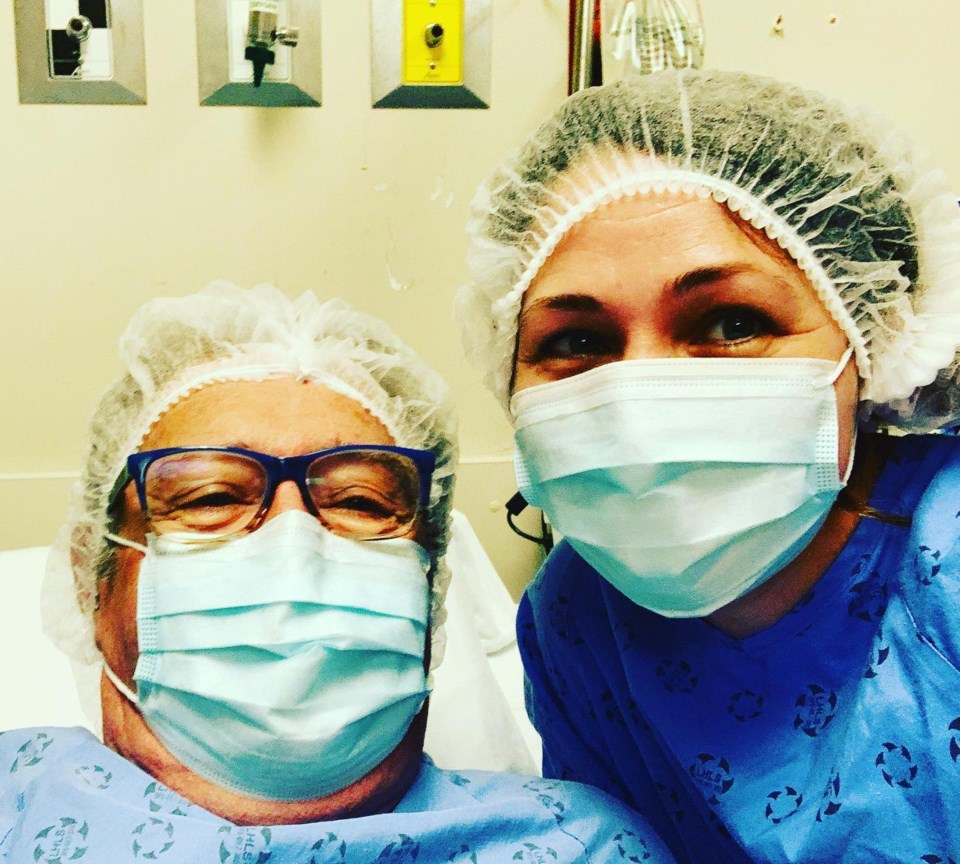Newmarket resident Brandy Robertson said her family had hoped a liver transplant could help save her father’s life.
With her father ill for several years, Robertson said she did not hesitate to volunteer when she found out she was an eligible liver donor for her father, Neil Reece, in 2020. But she said pandemic-related delays pushed the operation back three times to July 2021.
The operation went ahead, but her father never left the hospital. His illness continued, and he eventually passed away in November at age 64.
“By the time the surgery happened, my dad was just probably a lot weaker,” she said. “It was too much stress and trauma on him. If it maybe would have happened when it was originally supposed to happen, maybe we’d be enjoying our summer together.”
Hospital backlogs remain an ongoing issue the health-care sector and governments are trying to address. The provincial and federal governments have announced assistance in the past week. The province announced a “Plan to Stay Open” March 29, which includes funding to retain and accredit more doctors and add beds. The feds, meanwhile, announced a $2-billion top-up payment to provinces March 25 to address surgery backlogs across the country.
Robertson said she feels for hospitals put in a difficult situation throughout the pandemic. The strain of COVID-19 cases in hospitals across Ontario has resulted in non-urgent procedures getting halted several times throughout the pandemic, including over the winter.
“This $2 billion (funding), I think it’s amazing, but ... I’m sure there are many other people that are in similar situations, dealing with loss,” she said. “I just don’t understand how the hospital isn’t the number 1 priority.”
The Ontario Medical Association has advocated for support to address the backlog. Although non-urgent surgeries have been back on for several weeks, president Dr. Adam Kassam said it will take time to get through them.
“It’s a combination of trying to get back online, ramping up, but also understanding there is still a health and human resources challenge in this sector,” he said.
Kassam said they welcome the government support, though added they feel more is needed in terms of federal health transfers.
In the medium to long term, the OMA has advocated for integrated ambulatory centres to take on lower-complexity procedures outside of hospitals, though still working in close partnership with them.
“We will free up the hospital resources to do the important work that they do for acute and emergency care, but also continue to have a parallel stream of ambulatory day procedures that can get through much of the backlog in a timely and efficient way,” he said.
Ontario’s plan highlights further capital expansion to add 3,000 new hospital beds over 10 years.
“While the pandemic is not over, we are now in a place where we can use the lessons learned over the past two years and take actions to ensure our health system is even better, stronger and more resilient in the face of any future challenge,” Minister of Health and Newmarket-Aurora MPP Christine Elliott said in a news release.
Robertson said she hopes her story can speak to the importance of addressing hospital backlogs and organ donation. She said an organ donation significantly helped the life of her mother-in-law.
“I would do anything for my dad, and it’s devastating that he’s not here with me now,” she said. “If I can just keep spreading the word about how important it is to be an organ donor and to advocate for your own health, that’s the least I can do. Maybe someone won’t have the outcome that we did.”


